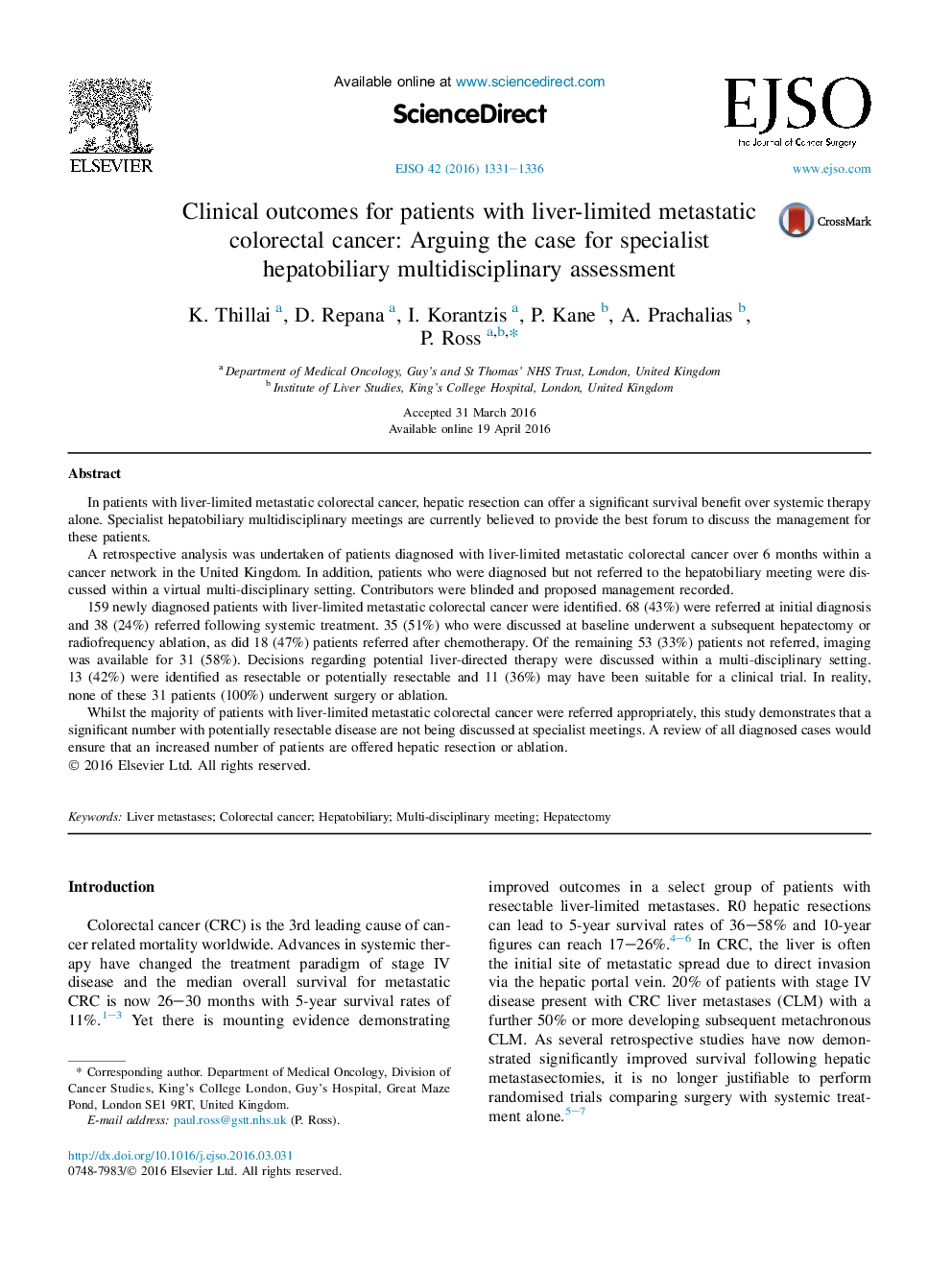| Article ID | Journal | Published Year | Pages | File Type |
|---|---|---|---|---|
| 3984437 | European Journal of Surgical Oncology (EJSO) | 2016 | 6 Pages |
In patients with liver-limited metastatic colorectal cancer, hepatic resection can offer a significant survival benefit over systemic therapy alone. Specialist hepatobiliary multidisciplinary meetings are currently believed to provide the best forum to discuss the management for these patients.A retrospective analysis was undertaken of patients diagnosed with liver-limited metastatic colorectal cancer over 6 months within a cancer network in the United Kingdom. In addition, patients who were diagnosed but not referred to the hepatobiliary meeting were discussed within a virtual multi-disciplinary setting. Contributors were blinded and proposed management recorded.159 newly diagnosed patients with liver-limited metastatic colorectal cancer were identified. 68 (43%) were referred at initial diagnosis and 38 (24%) referred following systemic treatment. 35 (51%) who were discussed at baseline underwent a subsequent hepatectomy or radiofrequency ablation, as did 18 (47%) patients referred after chemotherapy. Of the remaining 53 (33%) patients not referred, imaging was available for 31 (58%). Decisions regarding potential liver-directed therapy were discussed within a multi-disciplinary setting. 13 (42%) were identified as resectable or potentially resectable and 11 (36%) may have been suitable for a clinical trial. In reality, none of these 31 patients (100%) underwent surgery or ablation.Whilst the majority of patients with liver-limited metastatic colorectal cancer were referred appropriately, this study demonstrates that a significant number with potentially resectable disease are not being discussed at specialist meetings. A review of all diagnosed cases would ensure that an increased number of patients are offered hepatic resection or ablation.
